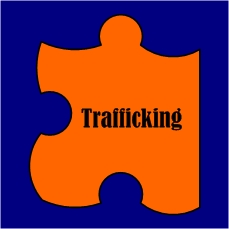Senate in Philippines Expands Trafficking Definition By Including Adoption Trafficking

“A tougher anti-human trafficking law will soon be on hand after the Senate approved on third and final reading Monday a bill putting more teeth to the government’s campaign.
Voting 19-0, the Senate approved SB 2625 or the Expanded Anti-Trafficking in Persons Act of 2010, co-sponsored by Senators Pia Cayetano, Loren Legarda, Franklin Drilon and Ferdinand “Bongbong” Marcos.
Among the amendments included was the inclusion of the crime of attempted trafficking, whether by recruiting, transporting, selling, buying, and forcing women and children to engage in prostitution or any other degrading means.
“Corresponding penalties will also be implemented against the act of adopting women and children especially if the adoption was proven to be a means of prostitution, forced labor, involuntary servitude or debt bondage, including recruitment of children for use in armed conflict, as these acts are considered possible means of trafficking,” said Cayetano, chairperson of the Senate committee on youth, women, and family relations.
“Anyone found to violate the provisions of this measure will be punished with 15 years imprisonment and a fine ranging from P500,000 to P1,000,000,” she added.
Confidentiality provision
Under the bill, the identity of victims of human trafficking will remain private, while persons accused of human trafficking will now be made public to warn possible victims.
Cayetano said “lifting the confidentiality provision favoring persons accused of human trafficking while maintaining the protection intended for trafficking victims, enables the government, as well as media and other NGOs, to disseminate information to the public and warn them of persons who might victimize them into this illicit global enterprise.”
An earlier study commissioned by the US Department of State titled Trafficking in Persons Report has identified the Philippines as one of the countries that have had little progress in its fight to stop human trafficking.
The Philippines has since been de-listed from the US State Department’s watch-list in its “2011 Trafficking in Persons Report,” Cayetano noted.
“The removal of the Philippines from the watch-list and moving us to Tier 2 indicates that we are moving in the right direction,” she said. ”
“”Years after the Anti-Trafficking in Persons Act took effect, the Philippines is still a long way from the goal of totally eliminating trafficking. Senate Bill No. 2625 will enable the different government agencies in our country to run after and prosecute persons and businesses engaged in the trafficking of our women and children,” she further said.
Amendments
Also included in the amendments to R.A. 9208 are the addition of a new section detailing acts that constitute attempted trafficking in persons; the strengthening of legal protection for victims in the form of custody and interim protection order; and the establishment of a permanent secretariat within the inter-agency council for anti-trafficking.
Senate President Juan Ponce Enrile lauded the passage of the bill, but advised the government to remain vigilant in its commitment to fight human trafficking.
“I urge President [Benigno] Aquino to fast-track the enactment of this measure into law for the sake of many of our people who are caught in the web of human trafficking. We must remain committed in eradicating this problem, not just to protect our women and children from predators, but also our overseas-Filipino-workers who suffer the most from human traffickers hiding in the guise of recruitment agencies,” he said.
Senator Loren Legarda expressed optimism that the proposed measure will significantly improve the country’s fight against human trafficking.
“Now that the Expanded Anti-Human Trafficking Bill has been passed on third reading, we are that much closer to providing lasting and effective solutions to the scourge of trafficking in persons,” said Legarda.
She also said a permanent secretariat within the Inter-Agency Council Against Trafficking (IACAT) will be established to ensure continuity of programs and to take the battle against trafficking to a higher plane of strategic action and public awareness. This secretariat will collect comprehensive criminal justice data on trafficking in persons and will train prosecutors and law enforcers.”
Senate OKs amendments to anti-human trafficking law
[GMA News 10/8/12 by Amita O. Legaspi]
REFORM Puzzle Piece

Recent Comments